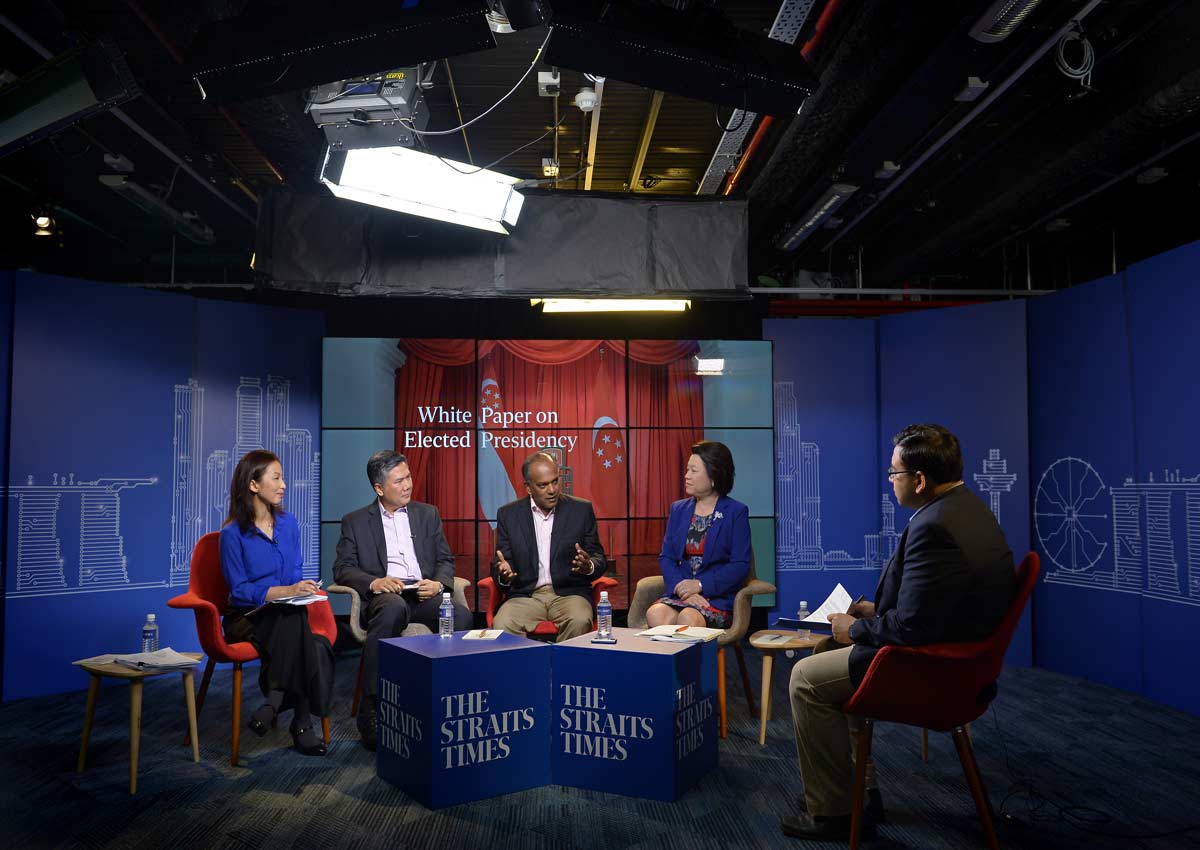Whether next year’s presidential election is one reserved for candidates from the Malay community will depend on addressing several legal issues.
But these will be sorted out and a decision made by the time amendments to the Constitution are tabled in Parliament next month, Law Minister K. Shanmugam said yesterday.
Reserved elections are among proposed constitutional changes accepted by the Government this week.
“Ultimately, it’s for Parliament to decide,” he said at a Straits Times Roundtable discussion on the Government’s White Paper reviewing aspects of the elected presidency.
On Thursday, the Government accepted a review panel’s idea of a “hiatus-triggered framework” to ensure minorities become president from time to time.
Under this model, an election is reserved for a race if no one from that group has been president for five continuous terms.
Yesterday, panellist and Institute of Policy Studies deputy director Gillian Koh asked if the clock for such a provision will start from 1991, when the elected presidency scheme was introduced through amendments to the Constitution, or 1993, when Mr Ong Teng Cheong was the first president voted in by the people.
If it starts from 1991, the next presidential race – which must be held by next August – must be reserved for Malay candidates.
There has not been a Malay president since Mr Yusof Ishak, who died in office in 1970. But if it starts from 1993, there must be one more open election before a reserved one kicks in in 2023.
Mr Shanmugam replied that there were legal issues to sort out before giving a definitive answer.
He did not elaborate, but said earlier this month that the Government was asking the Attorney-General for advice on aspects of the panel’s proposals to ensure representation of all major races in the office of the president.
Observers say one issue is defining who counts as an elected president: while Mr Ong was the first popularly elected president, his predecessor Wee Kim Wee, although chosen by Parliament, was the first to exercise discretionary powers due to a special provision inserted into the Constitution when the elected presidency scheme was introduced in 1991.
Mr Wee was president from 1985 to 1993.
Another is ensuring that the provision complies with the International Convention on the Elimination of All Forms of Racial Discrimination, which Singapore signed last year and is expected to ratify next year.
But he added: “Certainly, by the time the Bill is tabled in Parliament in October, we’ll be in a position to say where the clock starts.”

This article was first published on September 17, 2016.
Get a copy of The Straits Times or go to straitstimes.com for more stories.



























































































